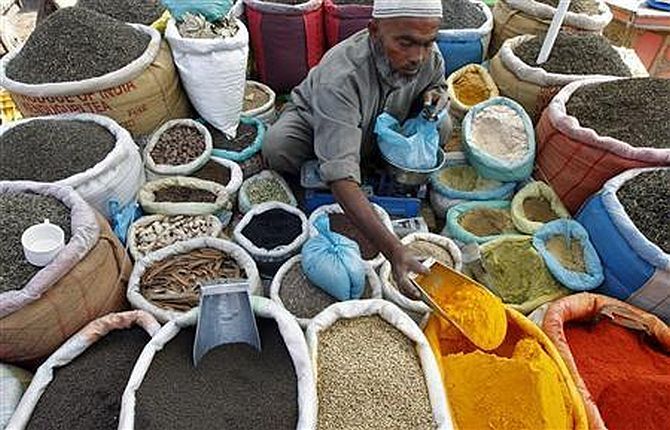If the current situation prevails, exports to China could fall by 10-15 per cent. Meanwhile, even the prices of cotton, of which Gujarat is one of the leading producers, have taken a hit.

With Chinese markets remaining closed amid the coronavirus outbreak, commodity exports from Gujarat, especially those of cumins, sesame seeds and groundnut oil, could take a 10-15 per cent hit over the next two months or so.
According to traders and exporters, China accounts for 20 per cent to 30 per cent of India’s export of some key commodities.
Each of these could fall by 10-15 per cent if the current situation prevails.
Chinese markets typically remain closed in January for Chinese Lunar New Year holidays.
This year, however, markets are yet to reopen amid precautionary measures in in view of the outbreak of coronavirus from Wuhan.
With the Chinese administration choosing to prolong the market closure in a bid to control the outbreak, the export of various commodities from India has suffered.
"Usually, these holidays last for five days. But this time markets have been closed for almost a fortnight. People are also choosing to stay at home wearing masks.
"We are in touch with fellow commodity traders in China over video calls, but the situation seems indefinite.
"Exports could be take a 10-15 per cent hit," says Vijay Joshi, president of the Unjha Commodity Association. Unjha is one of the largest cumin seed hubs in the country.
Roughly, 150,000 tonnes of cumin seeds are exported every year, a third of which (50,000 tonnes) goes to China alone.
Typically, 10 containers carrying 2,600 tonnes of produce are exported daily.
There has been a standstill on due to the outbreak.
Similarly, the export of sesame seeds to China, which accounts of 20 per cent of total sesame exports, has also taken a hit.
If the current situation prevails, exports to China could fall by 10-15 per cent, says Ashwin Nayak, chairman of the Federation of Indian Spice Stakeholders (FISS).
"India’s total sesame seed exports tend to be around 250,000 tonnes annually.
"Of this, 20 per cent goes to China. If the situation prevails even for a month or two, this could come down by 10-15 per cent," Nayak adds.
The scenario, however, is not so grim for groundnut oil exports, according to Sameer Shah, president of Saurashtra Oil Mills Association (Soma).
"Compared with Diwali of 2019, groundnut oil exports from Gujarat have in the first three months itself have already exceeded the total exports of last year, with China accounting for nearly 90 per cent.
"Hence, even if the exports slow down now, it may pick up later during the year," says Shah.
However, Shah adds that buying in China has slowed down significantly, though are there enquiries.
Meanwhile, even the prices of cotton, of which Gujarat is one of the leading producers, have taken a hit - down from Rs 41,000 per candy of 356 kg to Rs 39,000 - due to an uncertainty over new export orders.
Photograph: Fayaz Kabli/Reuters













 © 2025
© 2025